more you know, the less you need to carry.
What’s really important when it comes to survival?
We must begin by asking what “survival” means. Are we talking about economic survival? Wilderness survival? Urban survival? The survival of our health? Perhaps it’s a combination of all of these.
And, as I’ve been saying for the past 40-plus years: The more you know, the less you need to carry. And it’s true.
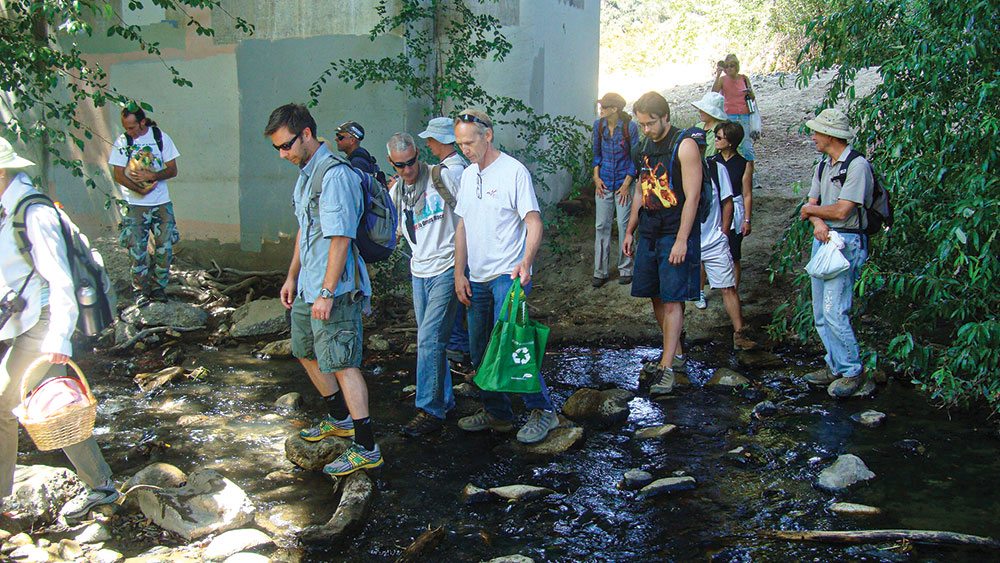
SKILLS VS. TOOLS
Everyone has an opinion about what’s important for “survival,” and that opinion is usually the result of a mix of experience and idealism.
As a teacher for nearly 50 years, I base my list of what’s “important” on my own personal life experiences and what I’ve observed to be the most important for students learning survival skills.
From my point of view, there are two major categories of what’s important: The first is the set of skills (and experiences) you need in order to move skillfully through a challenging life or environment. The second is the tools—the “stuff”—we all obviously need.
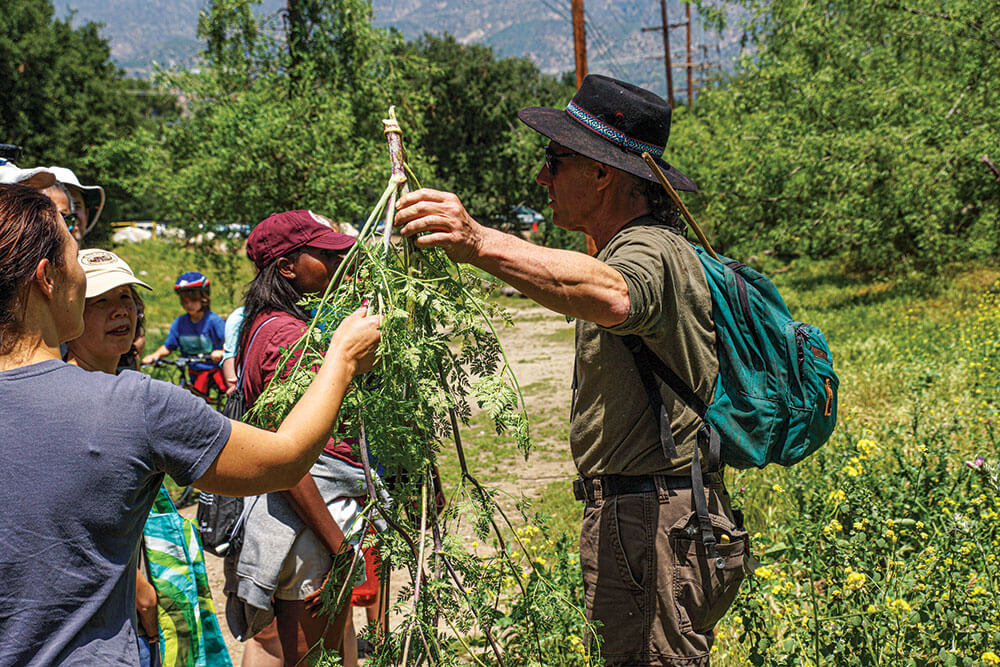
Of these two, the first is vastly more important, and that’s what I’m going to focus on in this article.
For instance, a skilled doctor should be able to handle many, if not most, medical situations with makeshift supplies. But having the best medical supplies will not make you a doctor; nor will it magically provide you with the knowledge to deal with cuts, wounds, illnesses, etc.
Always pursue knowledge first! Thus, all my advice here is about gaining more experience and pursuing knowledge instead of just obtaining tools.
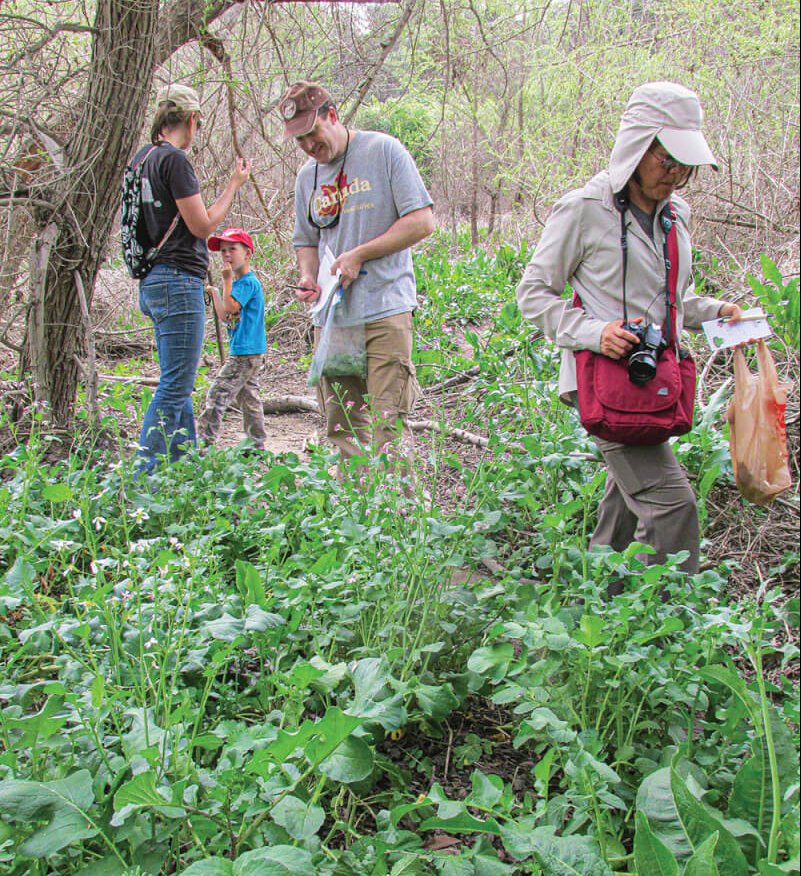
LEARN ABOUT PLANTS
When people ask me how to get started on the path of self-reliance and survival, I nearly always tell them that one of the best uses of their time is to learn about the plants that grow in their area and learn about the uses of those plants.
This is a skill that you’ll continue to learn, and you’ll be able to learn more and more all the time. The dividends of this study will also be great, because the knowledge of ethnobotany increases your survival wabilities.
The knowledge of plant uses informs you about finding food wherever you are, and it informs you about the ubiquitousness of medicines, as well as soaps, fibers, shelter materials, fire-making supplies and other useful things, that are readily available in nature.
As you continue your study of plant uses, you’ll start to realize that the reason indigenous peoples were able to “live off the land” was because of their deep and intimate knowledge of plant life.
So, my top bit of advice is to take a course in ethnobotany and begin to learn what our ancestors took for granted. That’s number one.
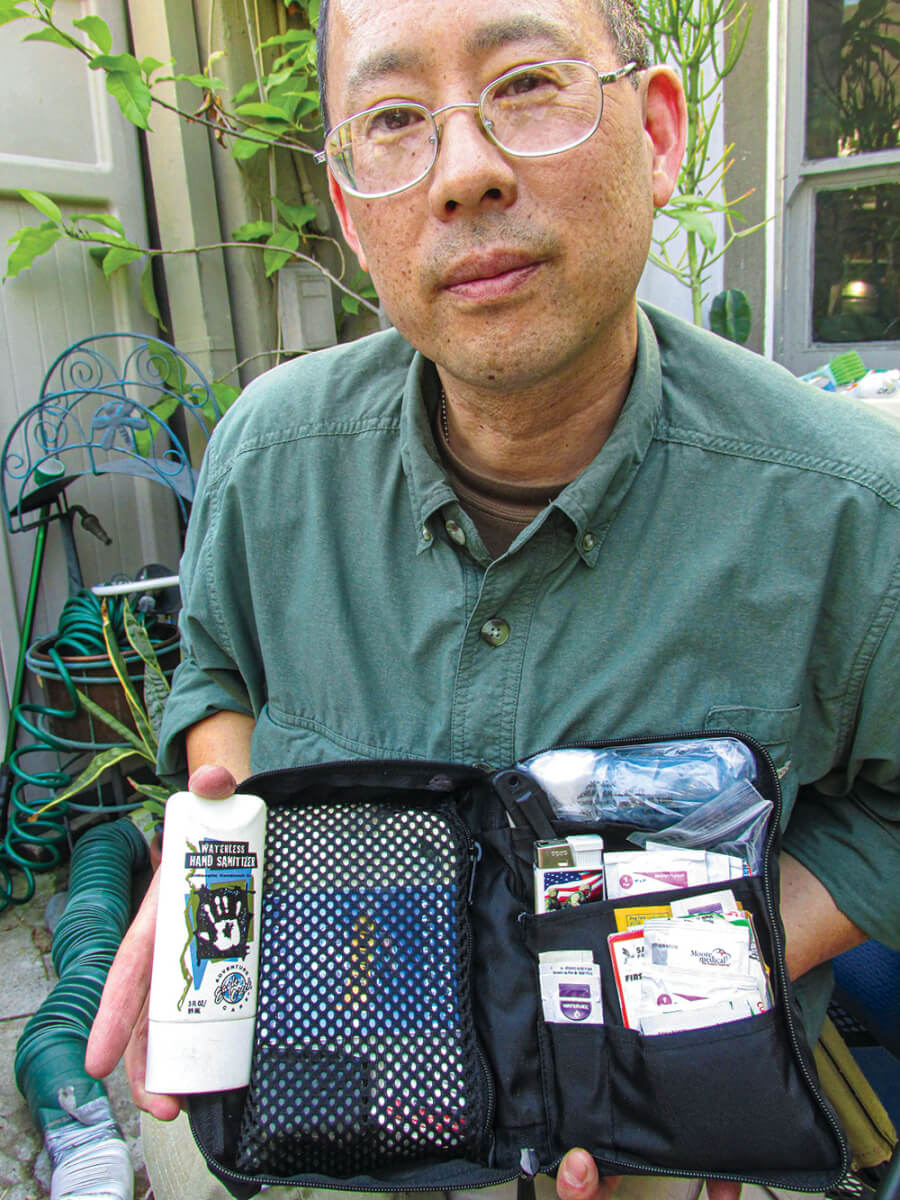
GET HEALTHY
Because your physical body is the foundation of your survival, you must take the time to learn what it takes to keep it healthy and thriving.
Yes, this might mean reading a book, but I’m really talking about taking the knowledge seriously and actually making lifestyle changes if necessary. There are many books on basic nutrition, and if you don’t know where to begin, try the Adelle Davis books (Let’s Cook it Right [1947]; Let’s Have Healthy Children [1951, 1972]; Let’s Eat Right to Keep Fit [1954, 1970]; and Let’s Get Well [1965]). Alternatively, read The Balanced Diet for You and the Planet by Dr. James Adams or any basic nutrition book of your choice.
Yes, you can read stuff online, but in the case of basic sound health practices, I think you’ll learn quicker—and better—by having an expert teacher with whom you can interact and ask questions. In fact, I suggest you actually enroll in a class if you feel you need to get things on track.
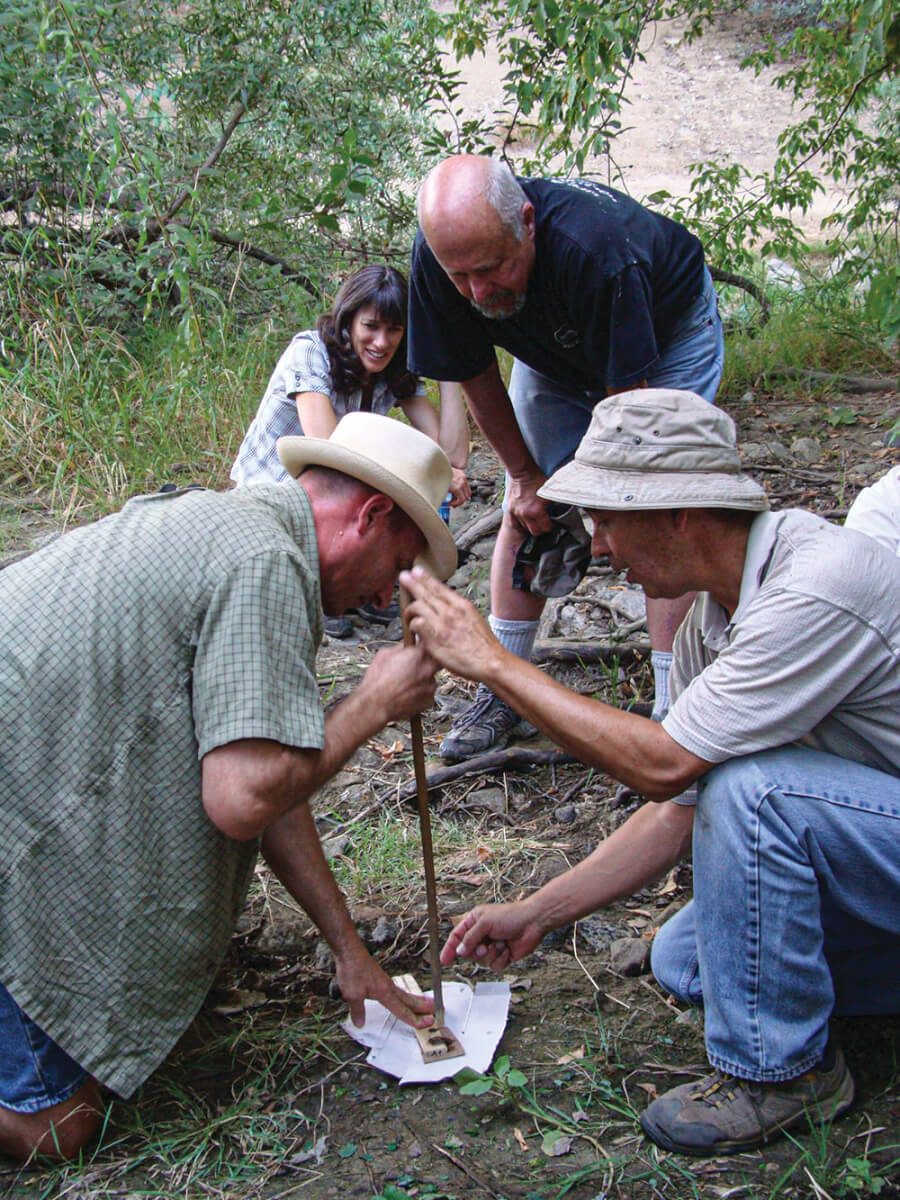
“Good health” includes healthy eating, consuming water and beverages that are as pure as possible, exercising daily and not consuming excessive “pleasure substances” such as illegal drugs, alcohol or tobacco.
Take the suggestion about exercise very seriously. Enroll in a gym if you haven’t already done so. If this isn’t feasible, walk, run or bicycle at least a few times daily. You’ll be doing yourself a favor.
FIRST AID
Take a basic first aid course (you can skip this if you’re a doctor, nurse, trained first responder or are otherwise employed in a profession that requires you to constantly stay up to date on first aid). Focus on “wilderness” and “emergency” first aid. The Red Cross offers courses in most cities around the country that can be helpful in this area.
Emergencies, big and small, are daily occurrences around us. You don’t want to run around in a panic when something happens, so be prepared in advance. And even if you’ve taken the time to purchase the “best” first aid kit, it will be of minimal value if you don’t know how to properly use its contents.
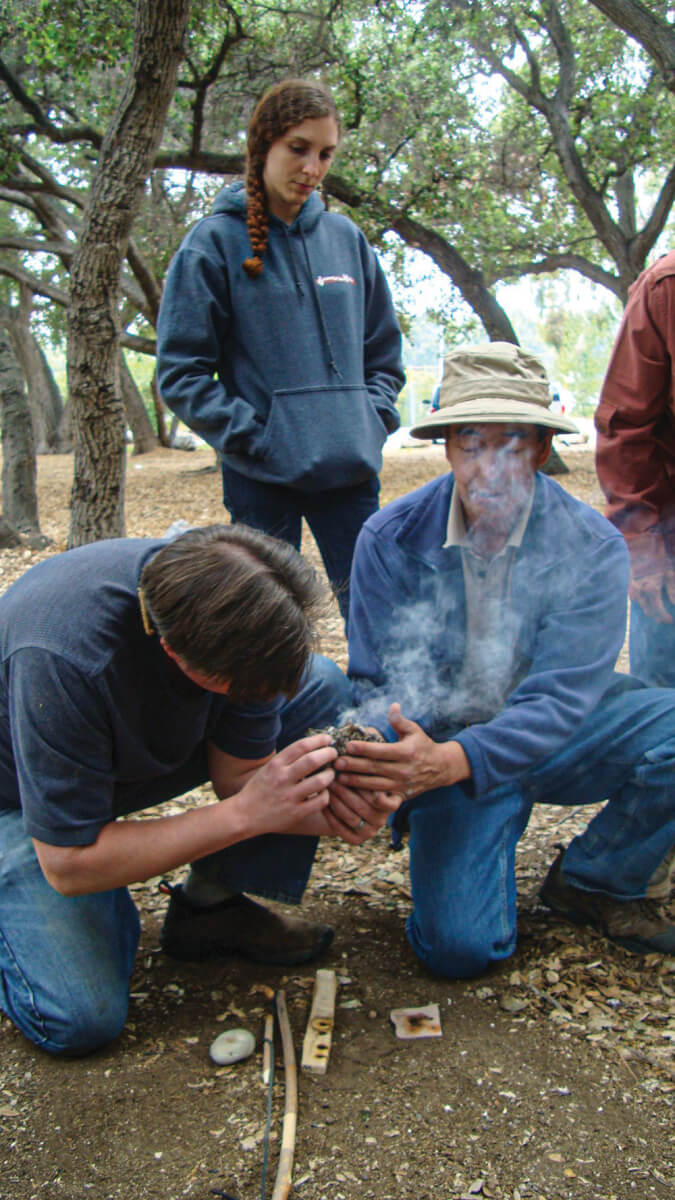
MASTER THE ART OF FIRE-MAKING
Next in terms of learning what are traditionally thought of as “survival skills,” begin learning about the art of making a fire. There are many facets to this, but however you learn the skills, be sure to practice and apply what you’re learning. Think mostly “primitive” fire skills, such as the ancient methods of making fire with wood.
There’s no shortage of gear available to make sure you can always start a fire. Buy lots of butane lighters. Get several ferrocerium and magnesium fire-starters or other dependable tools if you prefer.
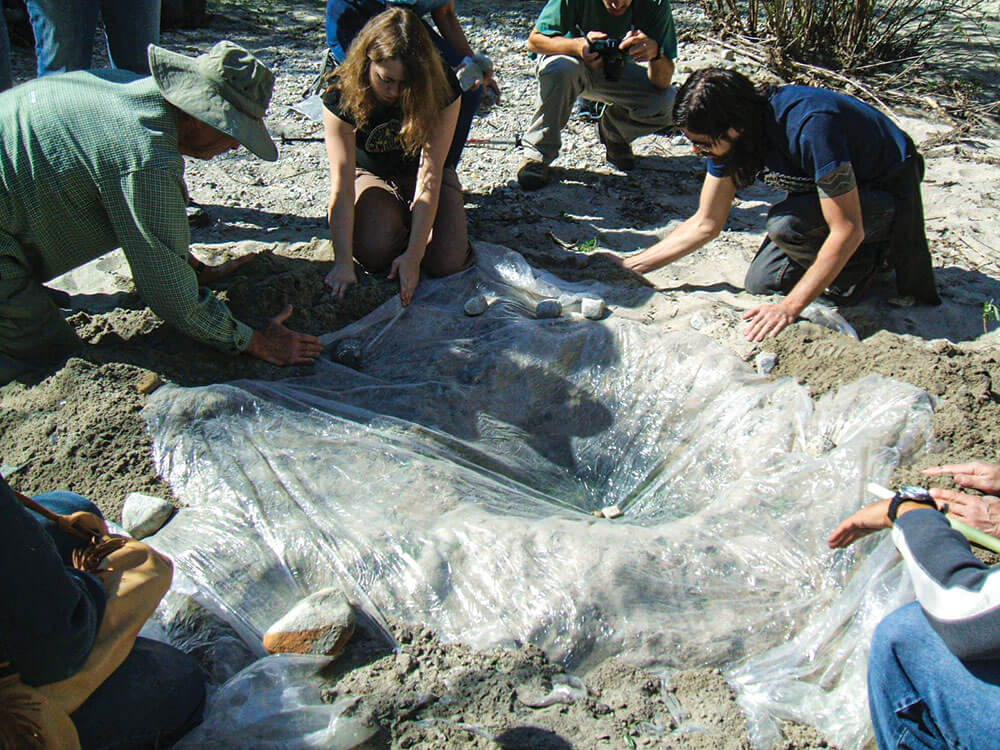
Everyone should carry a few fire-starters at all times, whether you’re in the woods or in the city. You can purchase a little Fresnel lens magnifier the size of a credit card; it’ll fit into your wallet. A magnesium fire-starter can be carried on your key chain.
Get a few good steels and learn how to use flint and steel to make a fire. Then, when you have the time, take a fire-making class and learn how to make fire from batteries and steel wool, from a car battery and from a cigarette lighter. Learn to make a fire using the traditional methods of the hand drill and the bow and drill (this last method is one of the ultimate skills to master).
THE WATER OF LIFE
Because water is so important to life, learn where you get your water.
If you live in a rural area, you probably already know this. But, if you’re like most urban and suburban people, you probably have no idea where your water ultimately comes from. You should learn the details of how you get your water, as well as the weaknesses of that system. Remember: Knowledge is power.
Yes, you should probably store water too. Obtain food-grade containers and store as much water as you can.
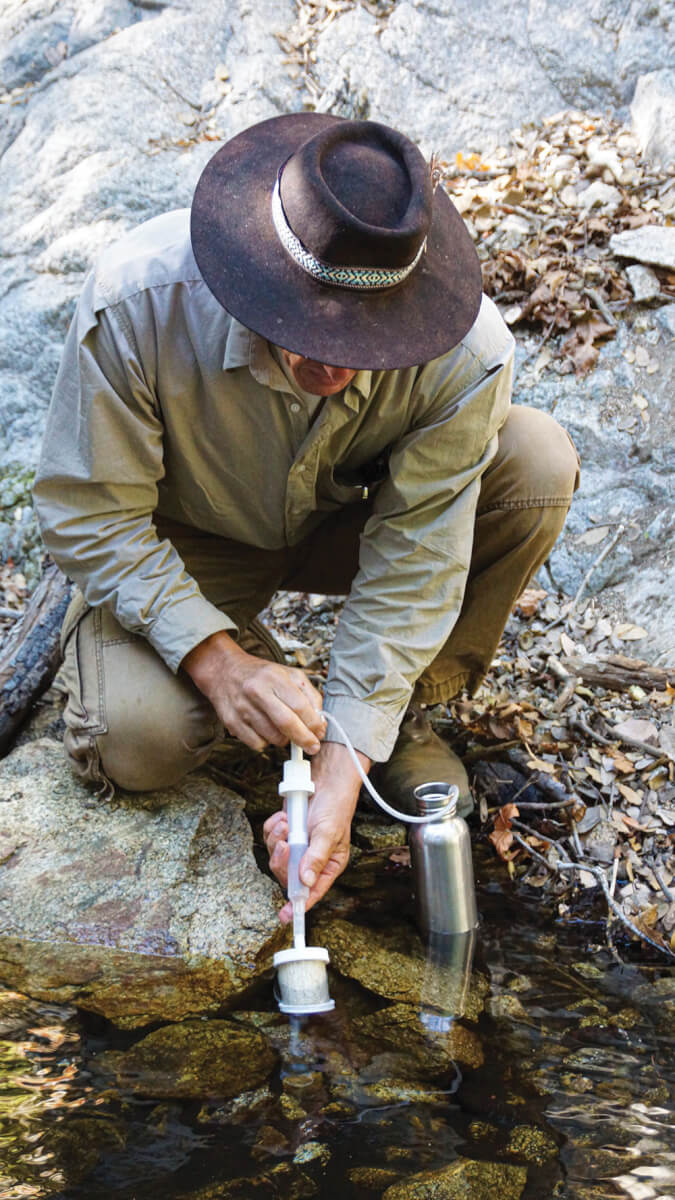
If you’re a regular reader of American Outdoor Guide, you should already know that boiling water is the best way to kill all biological contaminants in it. Consequently, you should keep supplies in your yard or kitchen for boiling water. And, yes—purchase a good water purifier; there are many on the market.
I’m still a fan of boiling water, and I sometimes use iodine crystals for water purification. I also carry at least one water filter. I like the Timberline filter because it’s easy to use, as well as a Sawyer filter and the products manufactured by Katadyn.
“As a teacher for nearly 50 years, I base my list of what’s ‘important’ on my own personal life experiences and what I’ve observed to be the most important for students learning survival skills.”
Carry a canteen. I nearly always carry a metal canteen. However, I sometimes carry plastic ones too. These can be found easily, so buy a few and make sure to carry them.
COOK YOUR MEALS
If you’ve drifted along in life and regularly buy takeout food and barely cook your own meals anymore, I recommend making a sharp left turn and start preparing your own meals. This is better for your health, saves money and, yes, this is an essential self-reliance skill. Cooking your own meals is also so much more economical. In addition, the process of preparing, cooking and eating your own meals can be a wonderful act of community togetherness (even if the “community” is just your family), as well as a time to converse and solve problems.
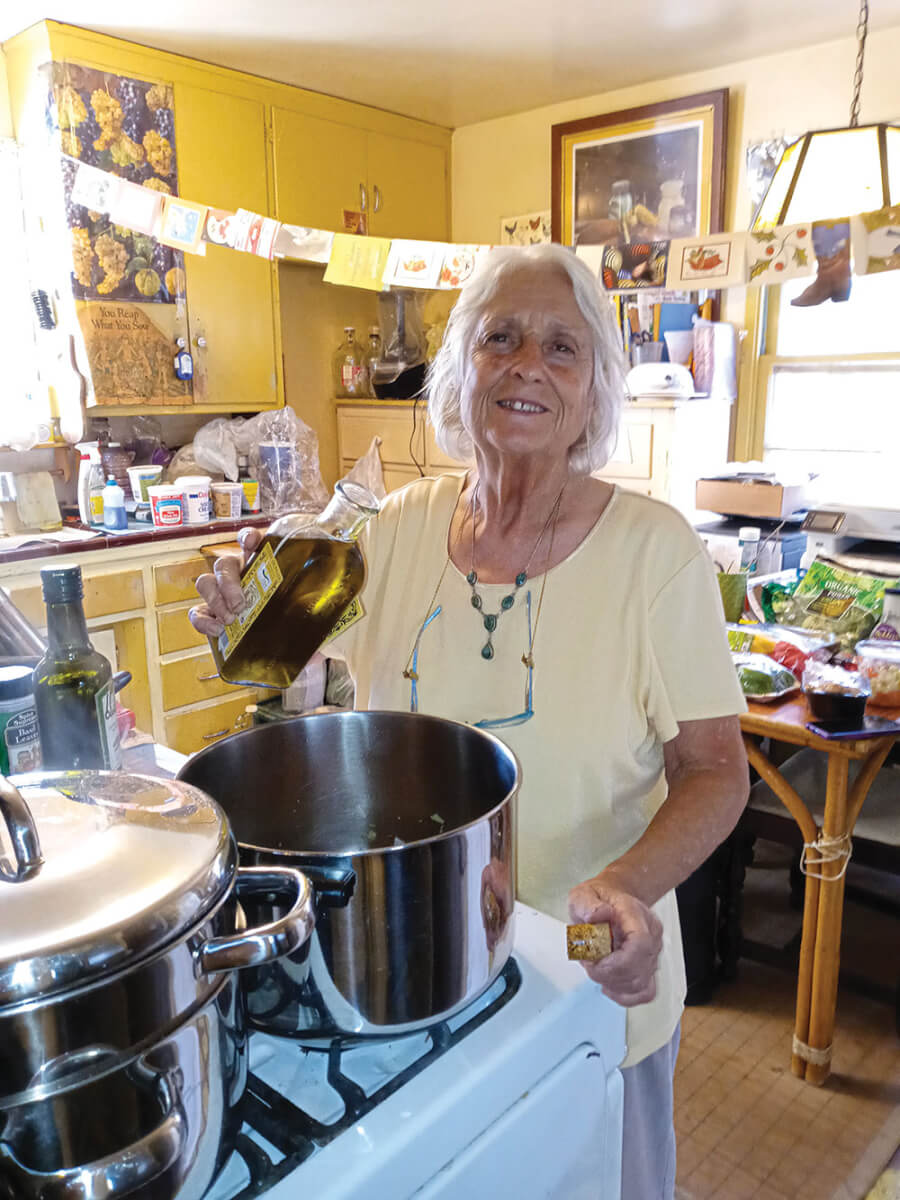
MAKE REPAIRS
Learn how to repair the things in your immediate environment, especially those areas in which you have the least knowledge, such as fixing an electrical outlet, fixing something on your car or truck, replacing some leaky plumbing; those sorts of things. It’ll obviously take longer to do these things yourself (perhaps working along with the expert you hire to teach you). However, the payoff is in knowledge and the confidence that you know what to do if and when the need arises.
Knowing how to fix things provides you with the day-to-day confidence that you can overcome minor inconveniences. And, in the aftermath of an urban or rural disaster, we’re not likely returning to the Stone Age; rather, we’ll be spending months getting things back to functioning again. And a big part of that is knowing how to repair or work around things that break.
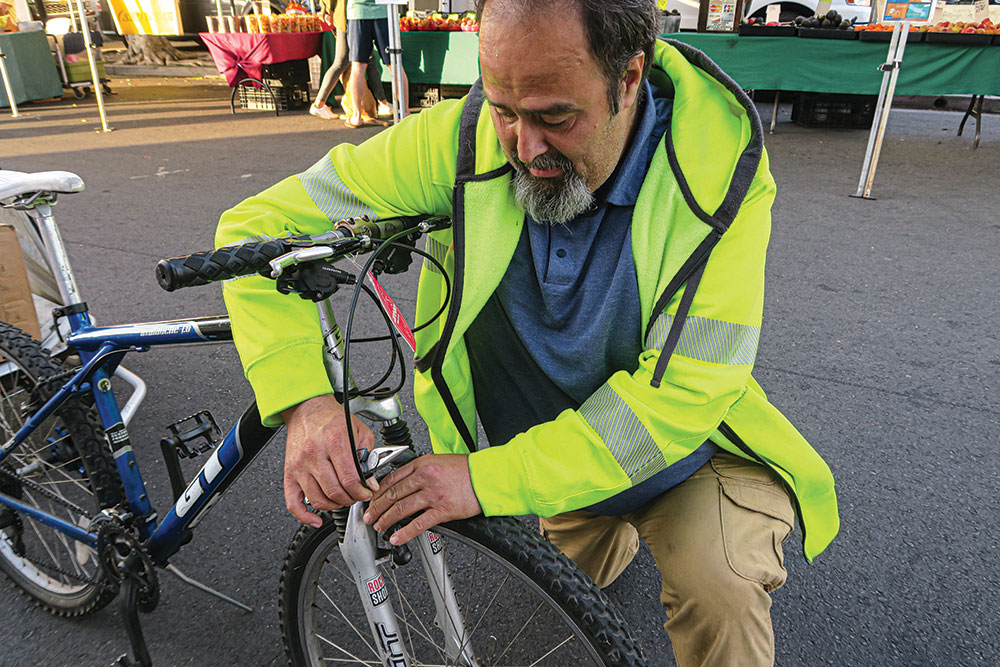
BE FRUGAL
Practice frugality. Don’t buy things you don’t need. If you pay for a storage facility to store things you clearly don’t need, get rid of it (that is, the stuff and the space). If you have piles and boxes of stuff that clutter up your life that you haven’t used in 10 years, you need to face reality: You’ll never use it! Get rid of it. Donate it to a charity, give it away, recycle it, or toss it.
Learn to live within your budget and save money. Learn to feel good by paying off bills—not by buying more things.
LEARN TO COMMUNICATE
Communicate. Don’t be a hermit. That’s the antithesis of survival. Join your neighborhood watch or other community organizations and be an active part of it as much as you’re able.
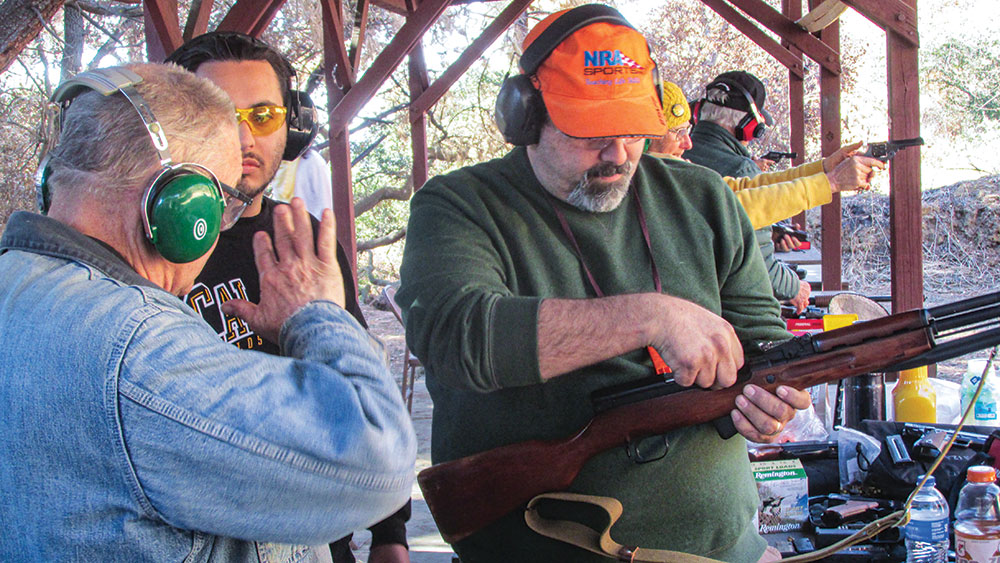
If you’ve ever heard yourself say, “I’m not a people person,” let me tell you that perhaps you’ve identified your biggest challenge. Become a people person. Being able to interact with others, learning to negotiate issues, how to barter with those who have what you need, along with all the basic skills that allow us to provide for our needs, are all incredibly essential to our survival and well-being.
WEAPONS TRAINING
Learn about weapons and weapons systems and go to the range periodically to practice with firearms. You don’t even need to buy a firearm to get started: Most ranges will rent you one.
Sooner or later, though, you most likely will obtain a firearm. If you’ve never purchased one before, I strongly recommend you read Dana Benner’s article that discusses your most basic firearms considerations in the July 2021 issue of American Survival Guide (volume 10, issue 7: “First-Time Firearm Selection Basics”).
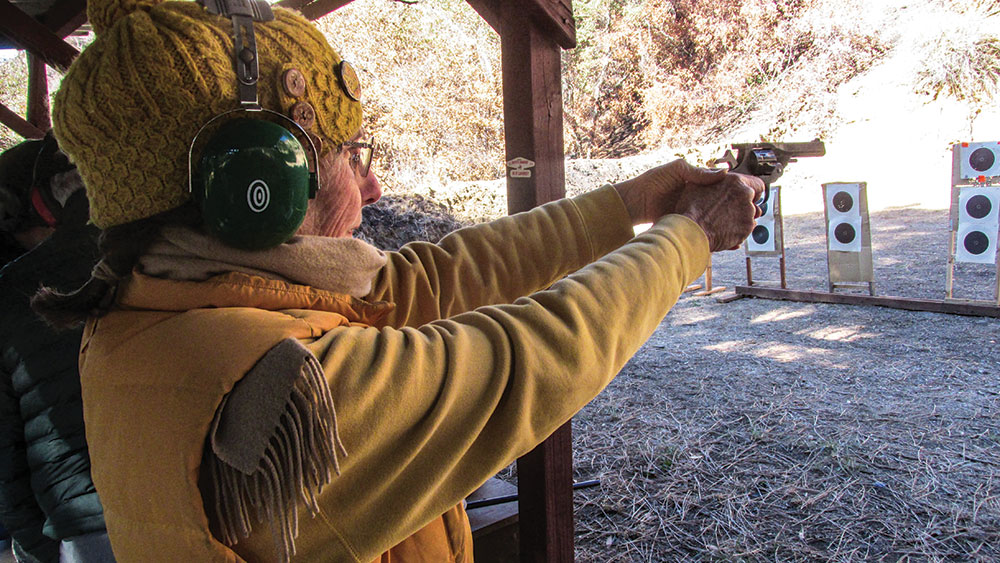
Do you prefer a revolver or a semi-auto? What size? What about a rifle? A shotgun? You do know the difference, right? If you’re a beginner, enroll in a local class with a gun club and learn about some of the basics, especially as they relate to the safety and legal aspects of owning a gun.
I have my preferences but choose not to state them, because this is a very personal choice, and everyone has their own criteria, including budget. Still, do I think you should own a .22 handgun? A 9mm semi-auto? At least one rifle and shotgun? Yes, of course.
CLOTHING
Clothes don’t “make” the man or woman, but they do exert a big influence on what the person can or can’t do. Clothing is your “shelter” at a close distance. Don’t buy clothing for fashion; buy it for function. You want sensible clothing that protects your body, is made of natural fabrics and has lots of pockets.
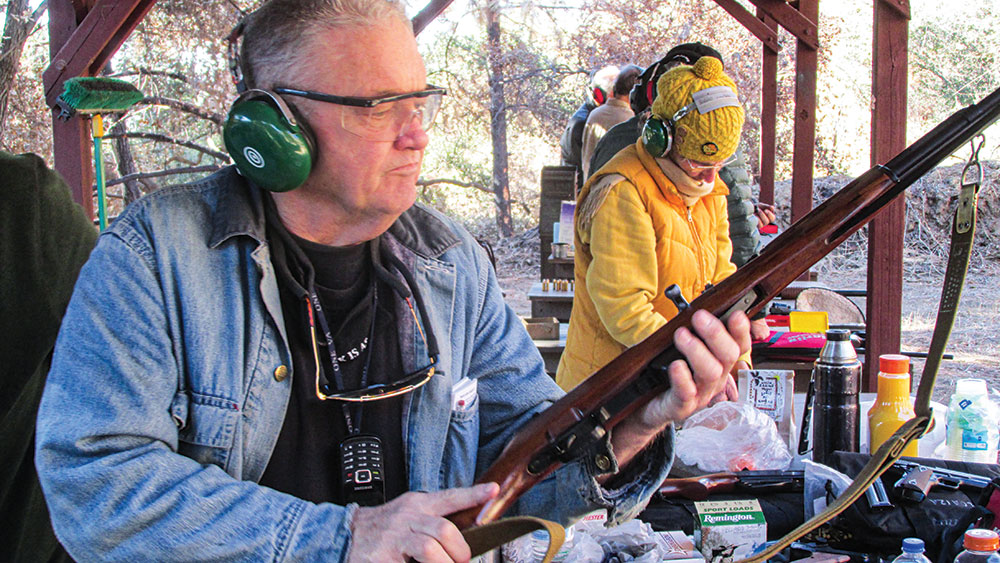
In my early backpacking days, I always carried needles and thread to fix tears in clothing, packs and sleeping bags. My mother taught me how to sew by hand and with a machine. Consider learning how to create some of your own clothing. Don’t get overwhelmed; just try one thing at a time. You might really like it!
PACKS
Yes; plural: packs.
If you’re like me, you have packs that serve different purposes. For instance, one could be for the trail in the woods, and another is to keep in the car with essential supplies.
What sort of pack should you buy? Get a pack that’s durable and fits your budget. Get one that’s comfortable to wear and roomy enough for your basic equipment.
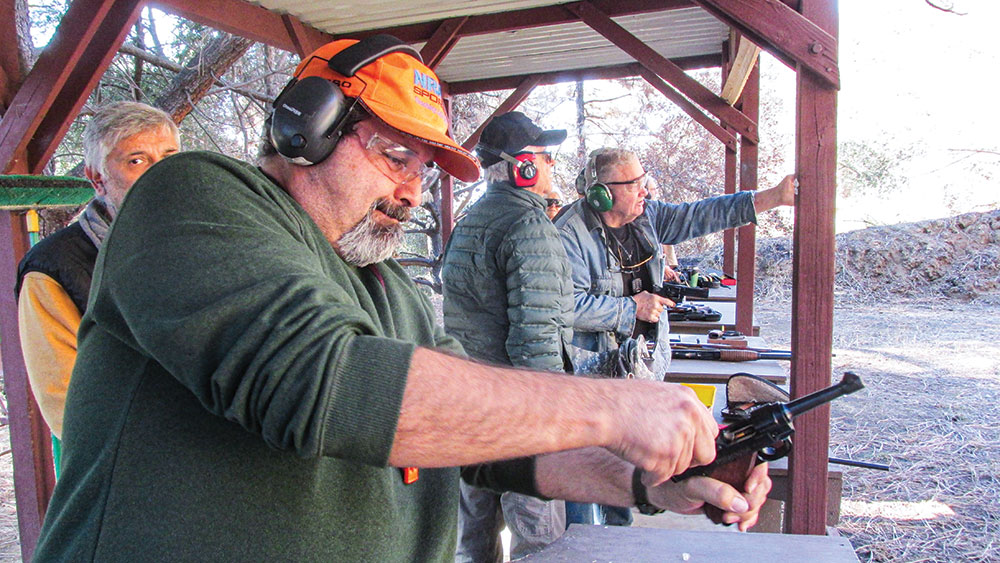
Which pack do I recommend? Unfortunately, that’s a rabbit hole I don’t want to go down, because I have so many for so many different uses. I have some beautiful homemade packs from the workshop of Rick Adams (please don’t contact him. He makes these only because he likes to. And no, he doesn’t have a catalog).
I also love the packs made by North Face: They’re well made, are comfortable for me, and North Faces gives you a lifetime guarantee.
KNIVES
You should always carry a knife. Always! I carry a Swiss Army knife, a Leatherman and various other knives in my pack, including a Cold Steel Bushman. At any given time, I might have as many as five sheath knives in my pack; I use them all. Carry whatever knife you’d like … but carry it. There’s no “best” knife, because it all depends on your personal needs, intended use, weight and your budget.
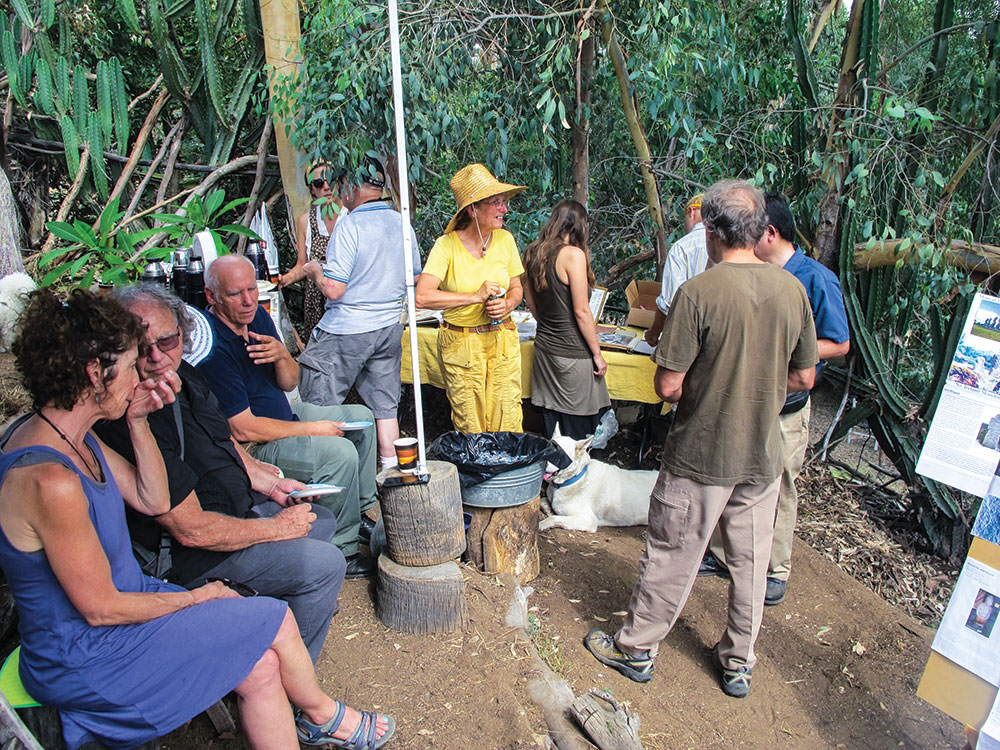
CORDAGE
Carry cordage with you into the woods, whether it’s sisal or jute twine, bank line or paracord. What do you need it for? I don’t know, but I do know you will need it, and you will use it.
MONEY
Do I have to remind you to carry money? Money is the universal medium of exchange; and, as long as there are other people in the world with things you might want and need, money will come in handy during good times or bad.
U.S. currency is useful in most of today’s world, and certainly it’s accepted throughout our country. Carry coin and paper—as much as is practical for your situation. Remember that smaller denominations are easier to work with in most situations.
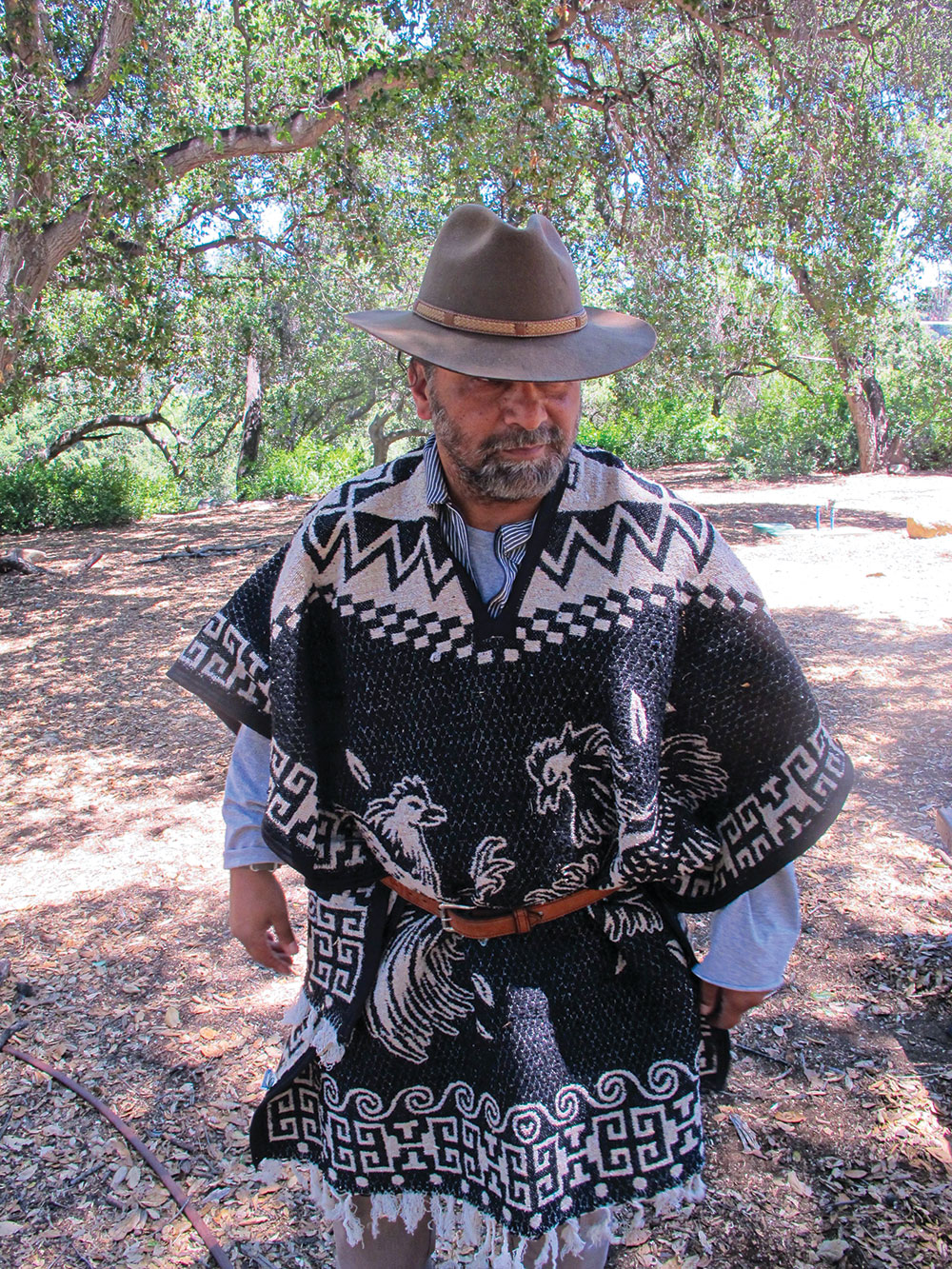
BOOKS
Once again, remember that knowledge is power … more or less. Just buying a book isn’t buying knowledge; you still need to read and study the book and apply the principles found inside to your daily life. Books are a powerful means to expand your potential.
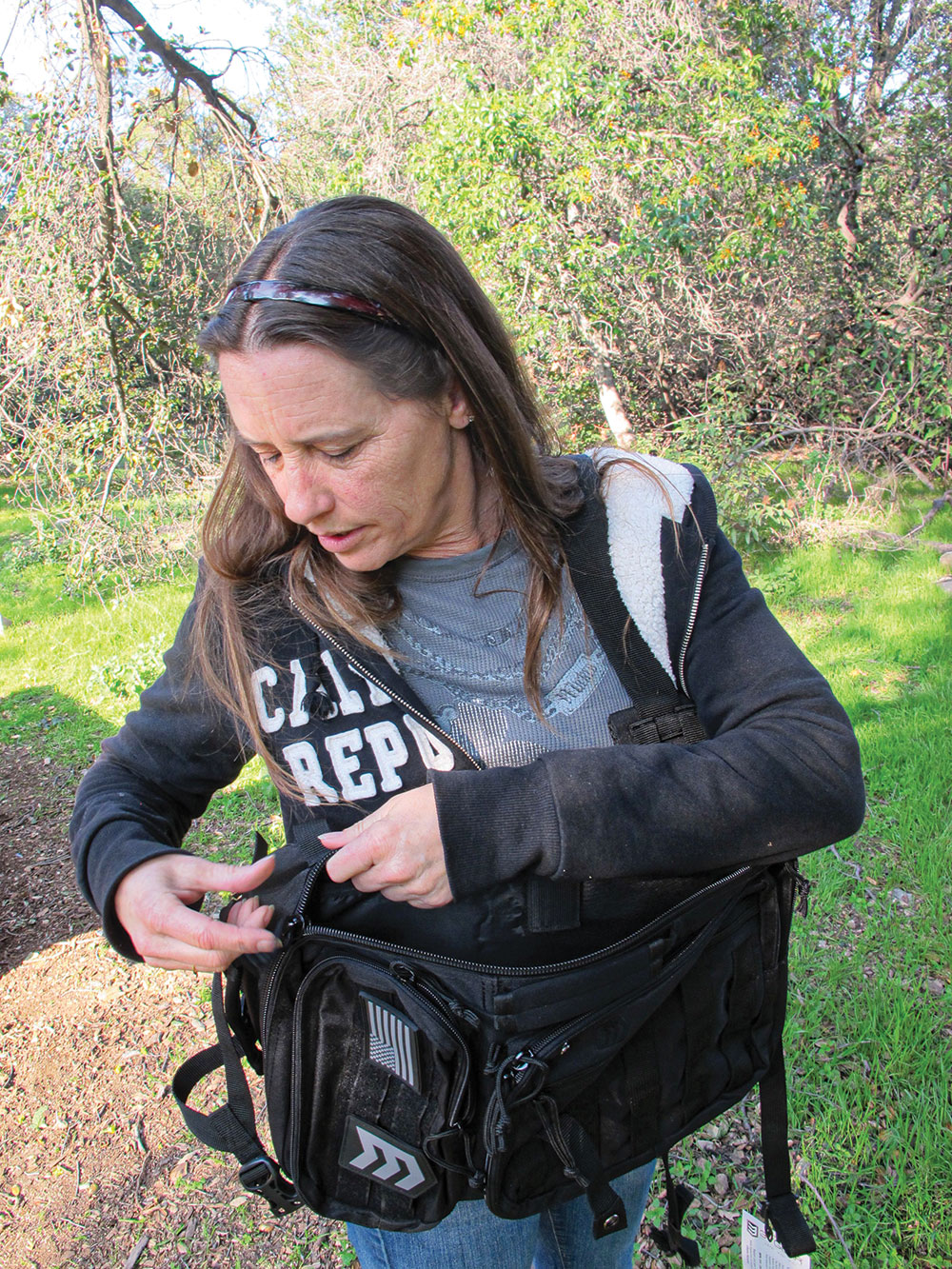
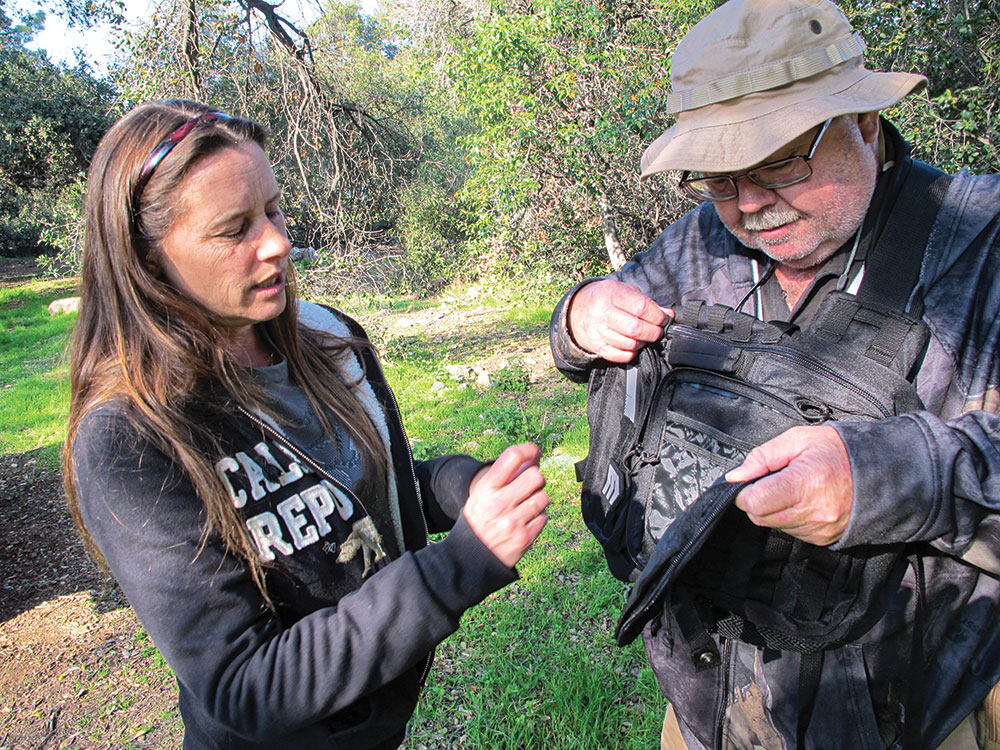
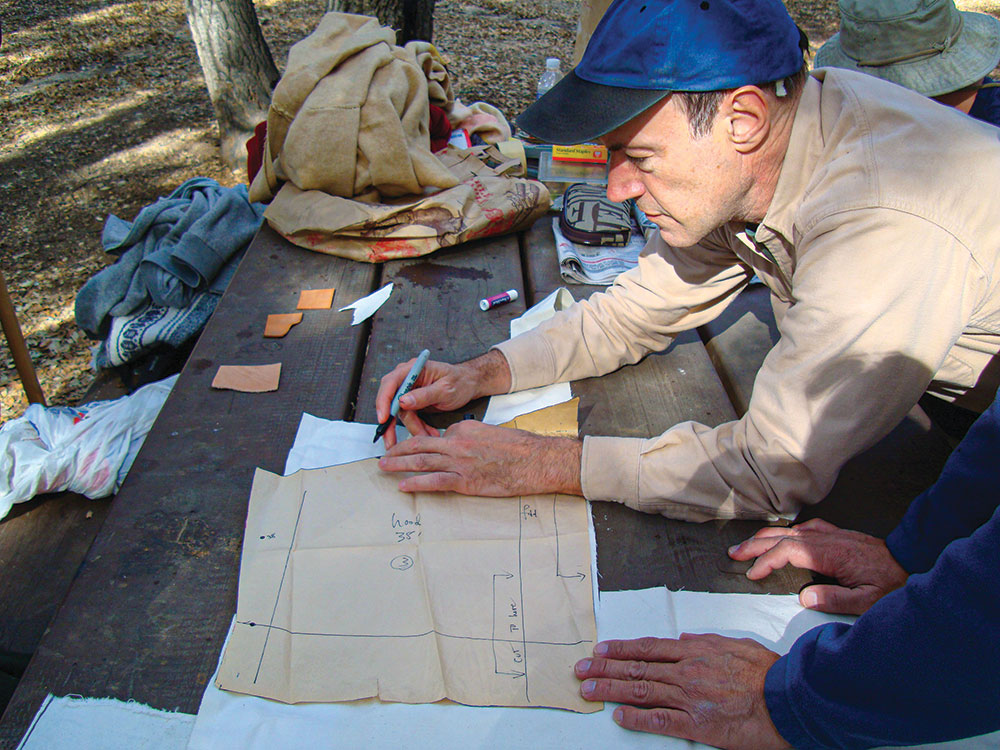
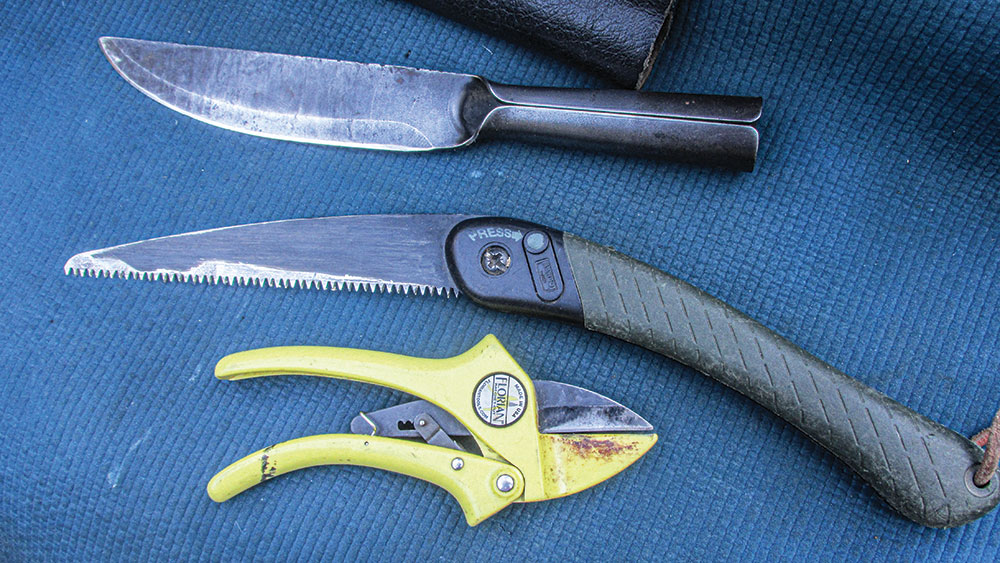
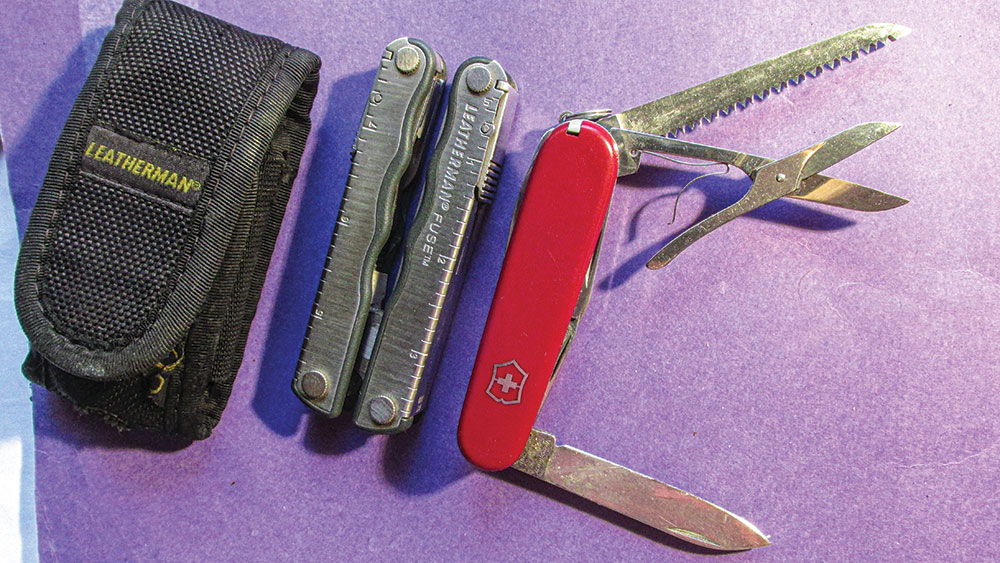
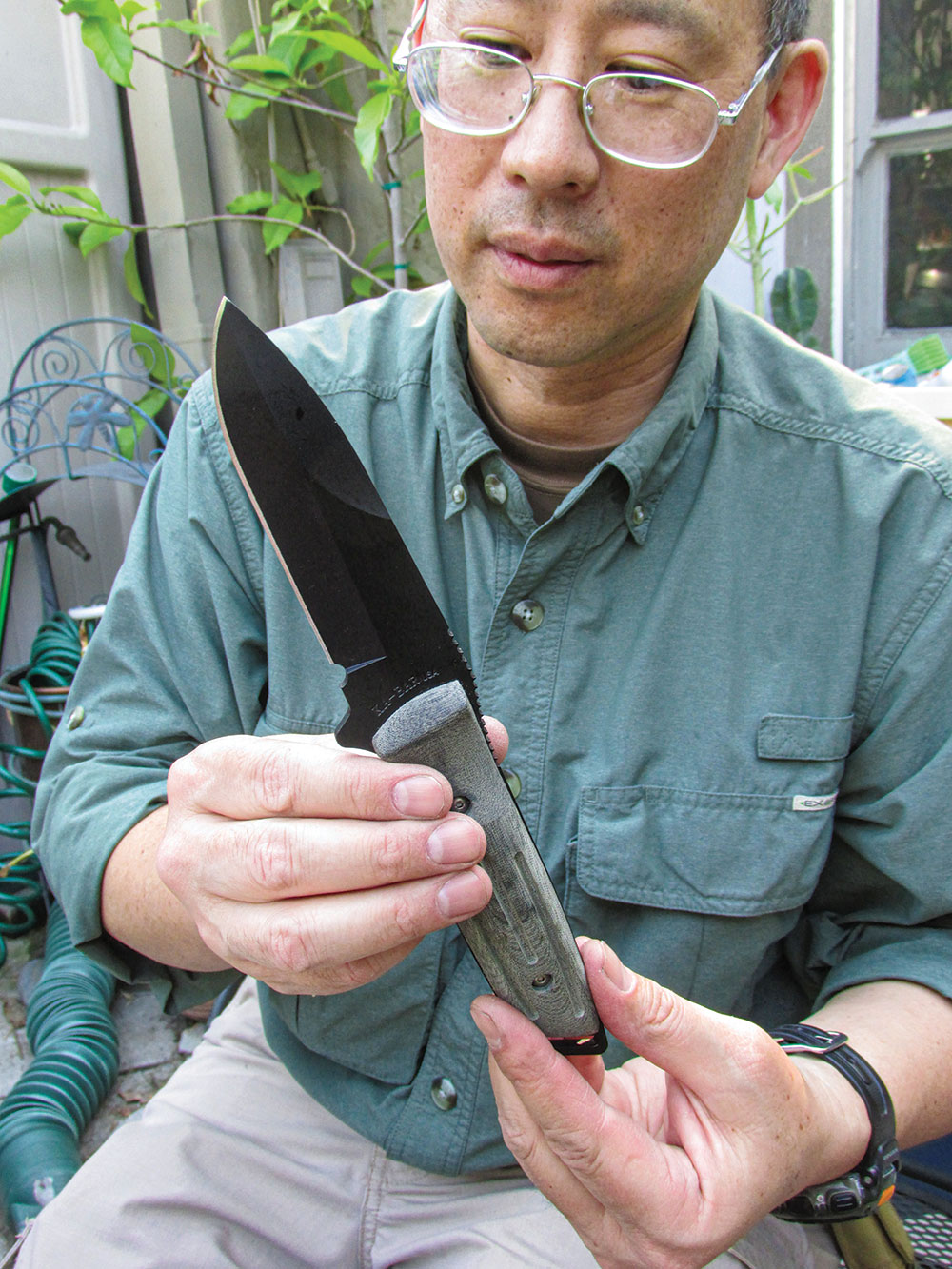
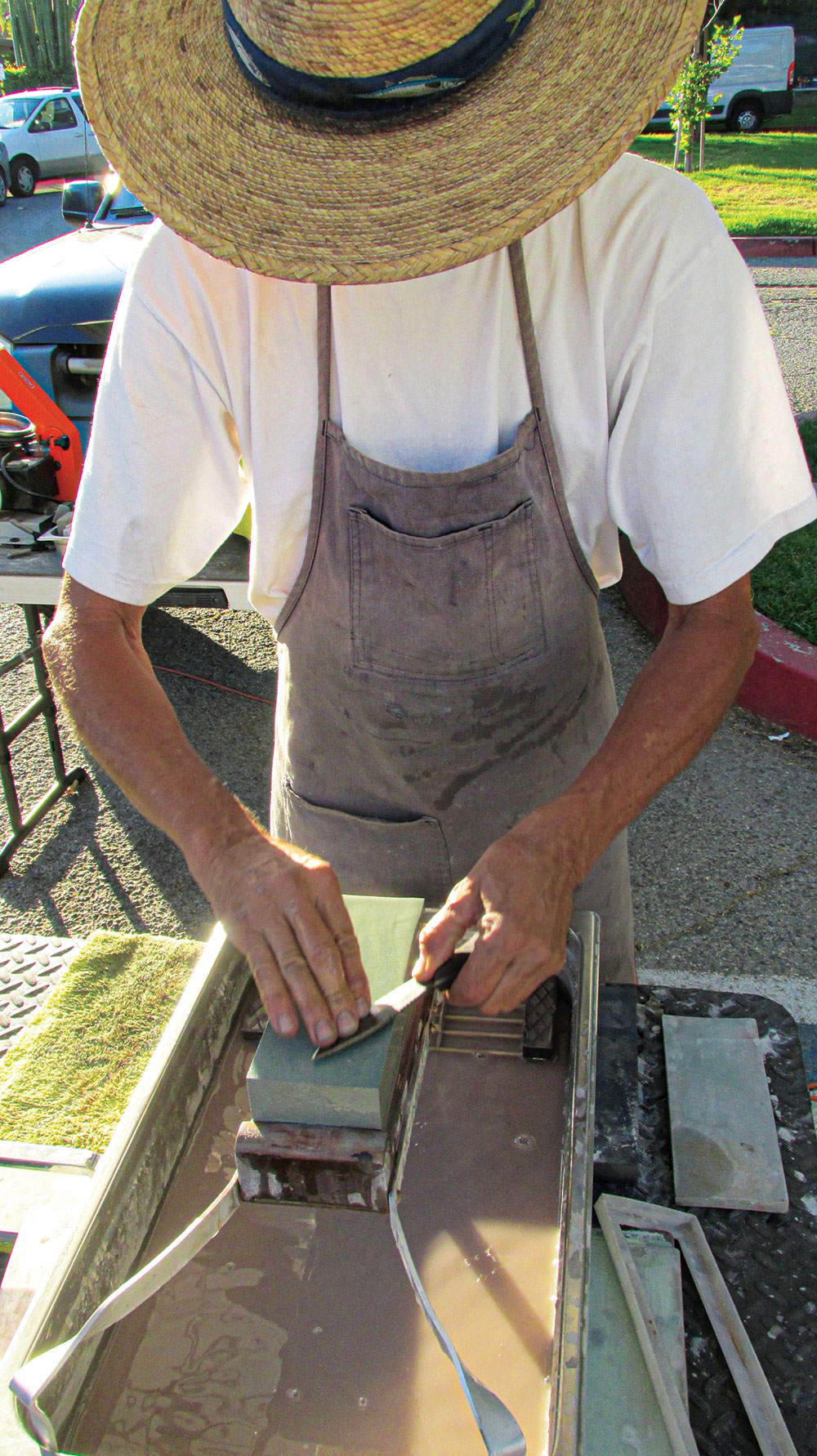
Part of knife upkeep is getting the appropriate sharpening tools and learning how to use them. Here, Julio Toruno demonstrates a Japanese style of knife sharpening.
Recommended Reading
Here are some great books to read. All are available via Amazon.com:
- The Balanced Diet for You and the Planet; Dr. James Adams
- Build the Perfect Survival Kit; John McCann
- Democracy is Self-Government; Harold Percival
- How to Survive Anywhere: A Guide for Urban, Suburban, Rural, and Wilderness Environments; Christopher Nyerges
- Language in Thought and Action; S.I. Hayakawa
- Survival Skills of Native California; Paul Campbell
- True Believer: Thoughts on the Nature of Mass Movements; Eric Hoffer
- Urban Survival Guide: How City Dwellers Can Live Well, and Frugally, Even in Dire Times; Christopher Nyerges
A version of this article first appeared in the November 2021 issue of American Outdoor Guide Boundless.

